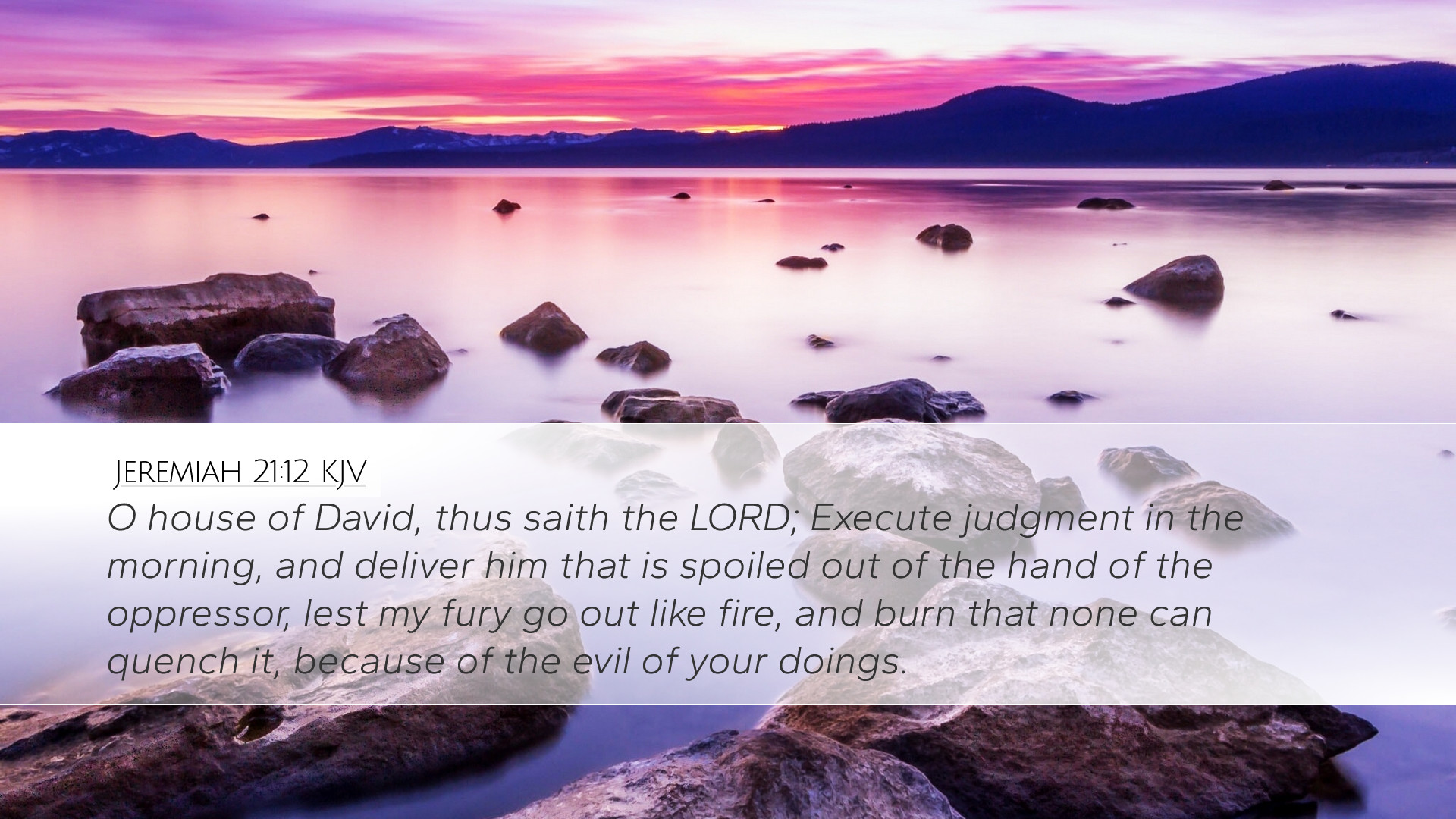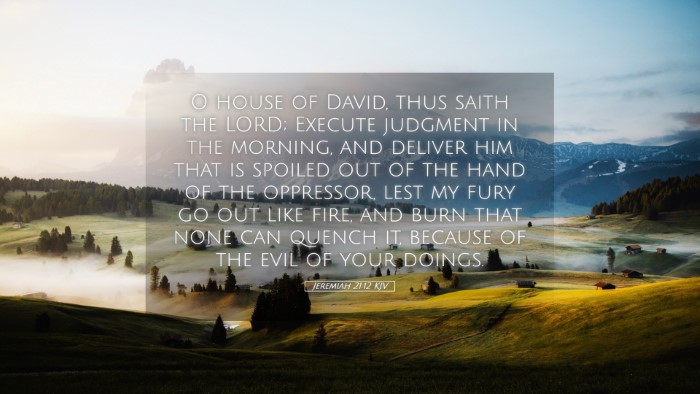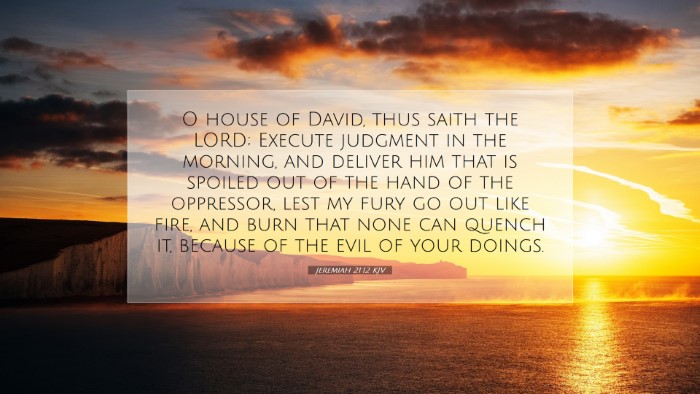Commentary on Jeremiah 21:12
Verse: "O house of David! Thus saith the Lord; Execute judgment in the morning, and deliver him that is spoiled out of the hand of the oppressor, lest my fury go out like fire, and burn that none can quench it, because of the evil of your doings."
Introduction
This verse serves as a profound admonition from the Lord through the prophet Jeremiah addressing the house of David. It emphasizes the need for justice, timely action, and awareness of divine judgment. In the context of the nation’s moral decline and impending judgment, this call becomes increasingly significant.
Insights from Commentaries
Matthew Henry’s Commentary
Matthew Henry focuses on the divine command given to the house of David. He notes that God addresses the rulers directly, emphasizing their responsibility to govern justly:
- Judgment and Justice: Henry highlights that “Execute judgment in the morning” stresses the urgency and diligence required in leadership. It implies that justice should not be delayed and must be enacted promptly and consistently.
- Oppression and Deliverance: The call to “deliver him that is spoiled out of the hand of the oppressor” underscores a key principle of biblical justice: the protection of the marginalized and oppressed. Henry reminds us that the rulers should act as advocates for those who suffer injustices.
- Consequences of Inaction: Henry warns that failing to heed these commands incites divine wrath, stating that the “fury of the Lord” may consume those who neglect their duty. This highlights a recurrent theme in Biblical literature—the serious consequences of injustice.
Albert Barnes’ Notes on the Bible
Albert Barnes accentuates the implications of God’s fierce declaration. He notes several critical points relevant to understanding the verse:
- House of David: Barnes identifies the “house of David” as a reference to the royal line and its accountability to God. The rulers are tasked with promoting righteousness among the people they govern.
- The Morning Context: To “execute judgment in the morning” could symbolize the beginning of a new day, thus signifying new opportunities for justice. This phrase implies a sense of urgency to rectify wrongs before darkness overshadows the nation.
- Fire Metaphor: The metaphor of God’s fury going out like fire serves to illustrate the intensity of divine anger. Barnes notes that fire symbolizes purification but, in this context, it forewarns of destruction if the people fail to amend their actions.
Adam Clarke’s Commentary
Adam Clarke provides a detailed interpretation of the text, focusing on the expectations of the people:
- God’s Call to Action: Clarke articulates that the verse reflects God’s active role in desiring the well-being of His people, urging leaders to remember their sacred calling to uphold justice.
- Repentance and Atonement: He asserts that this cry from God is also an invitation to repentance. Clarke indicates that should the people fail to repent and persist in sin, they will face grim consequences, which should prompt immediate self-examination and moral reformation.
- Reflection on Evil Doings: Clarke underlines that God’s fury is not merely a reaction to sin, but it results from a long-standing neglect of His ways. The prescribed actions of delivering the oppressed connect back to the covenant responsibilities of Israel.
Theological Implications
This verse carries profound theological implications regarding God's character and the nature of human authority. As leaders are called to “execute judgment,” it reflects the understanding that divine justice manifests through human governance, and thus, rulers act as stewards of God’s moral order.
Application for Today’s Church
For contemporary pastors and church leaders, the call to execute justice remains relevant:
- Social Responsibility: The Church is summoned to advocate for the oppressed, becoming a voice for justice in societal issues, resonating with the biblical mandate.
- Urgency in Leadership: There is a call for urgency in addressing injustices and moral decay within communities, akin to the morning call for action imbued in the verse.
- Reflecting God’s Character: The Church must emulate God's character by acting with righteousness and compassion, reflecting this divine image to nations suffering from oppression.
Conclusion
Jeremiah 21:12 serves as a sobering reminder of the integral role of justice in leadership and the seriousness with which God views the plight of the oppressed. The insights from Matthew Henry, Albert Barnes, and Adam Clarke collectively urge both leaders and congregants to pursue justice with diligence and urgency, remembering that our actions bear weight not just socially but also in the light of God's eternal judgment.


